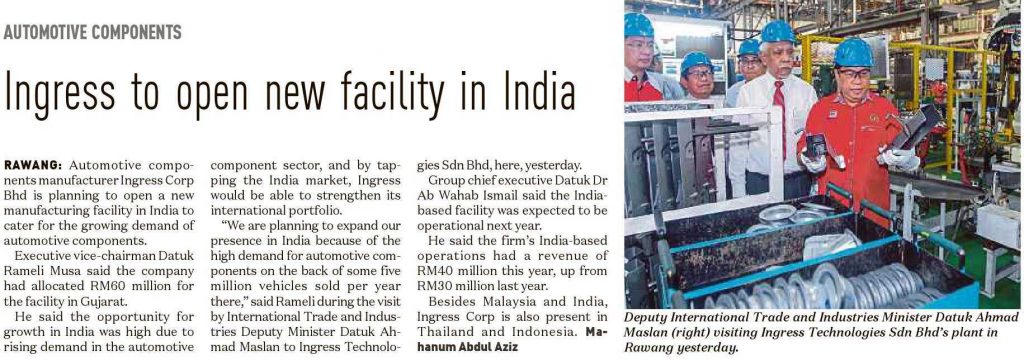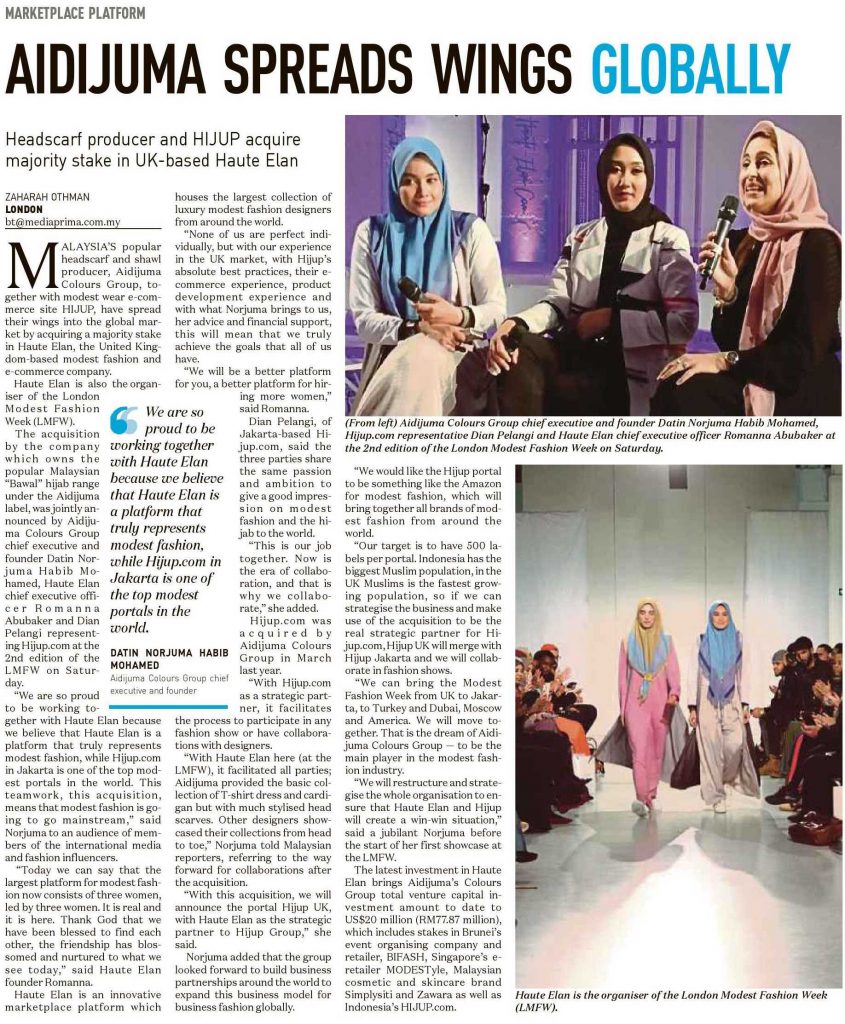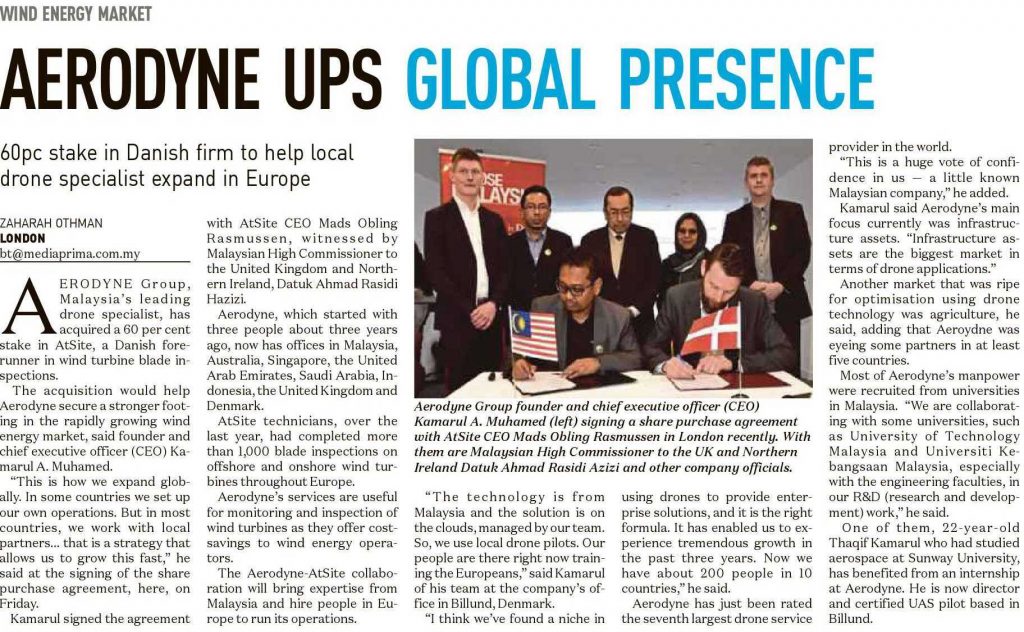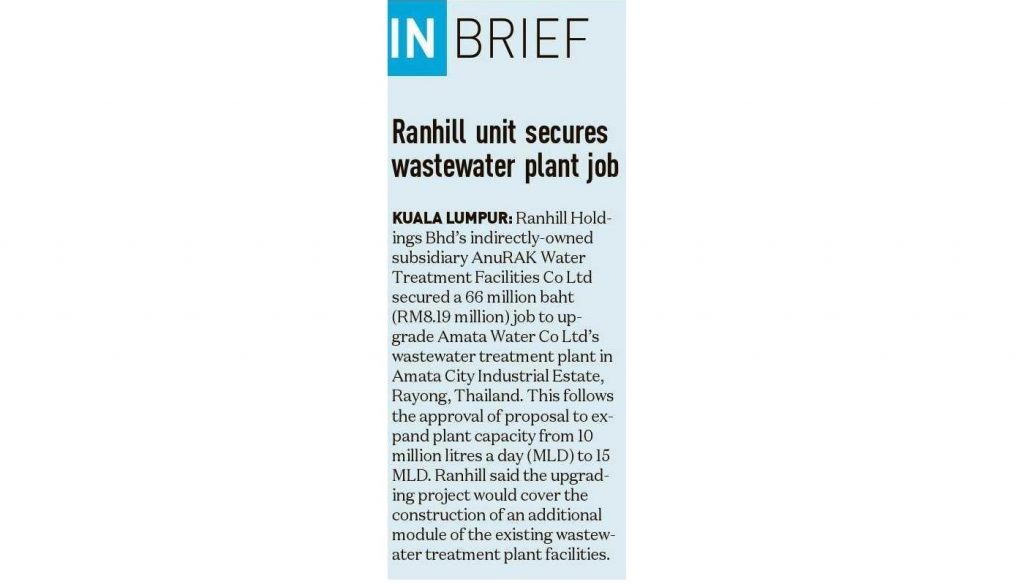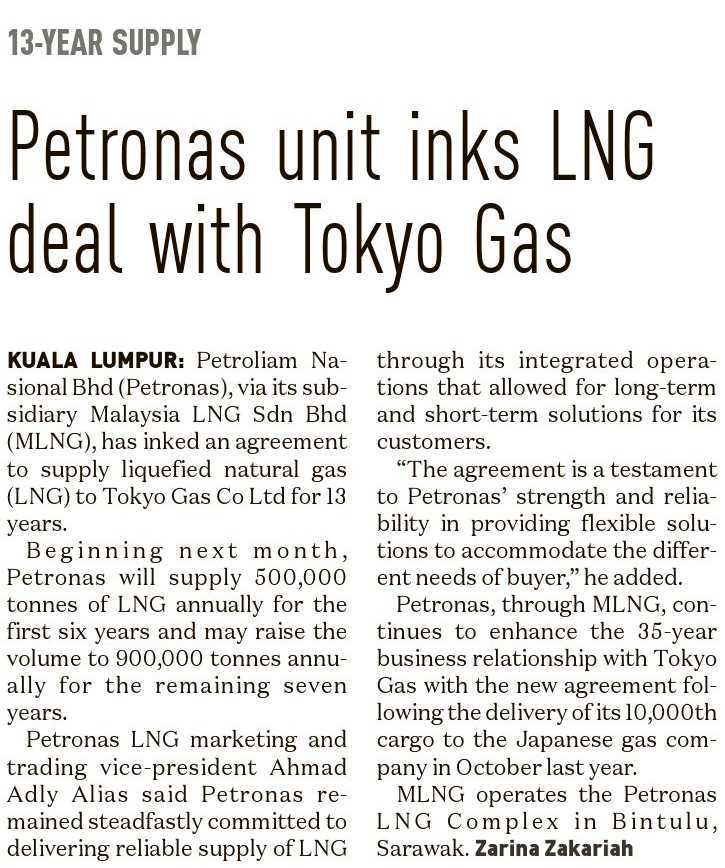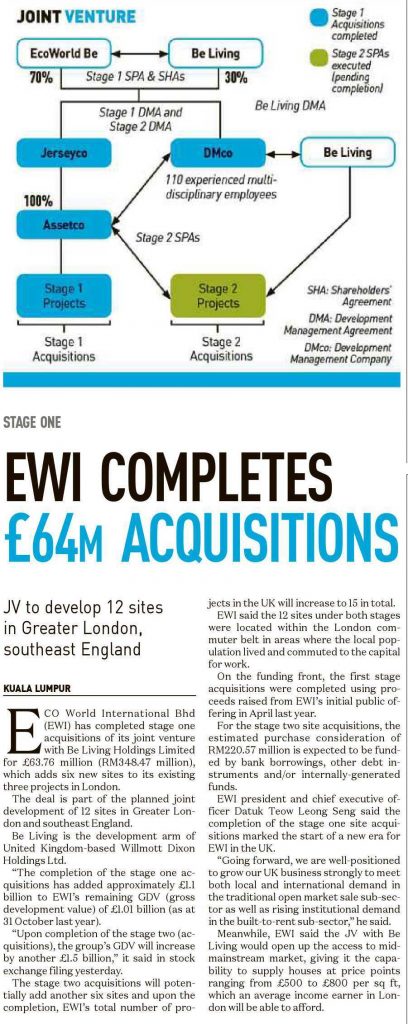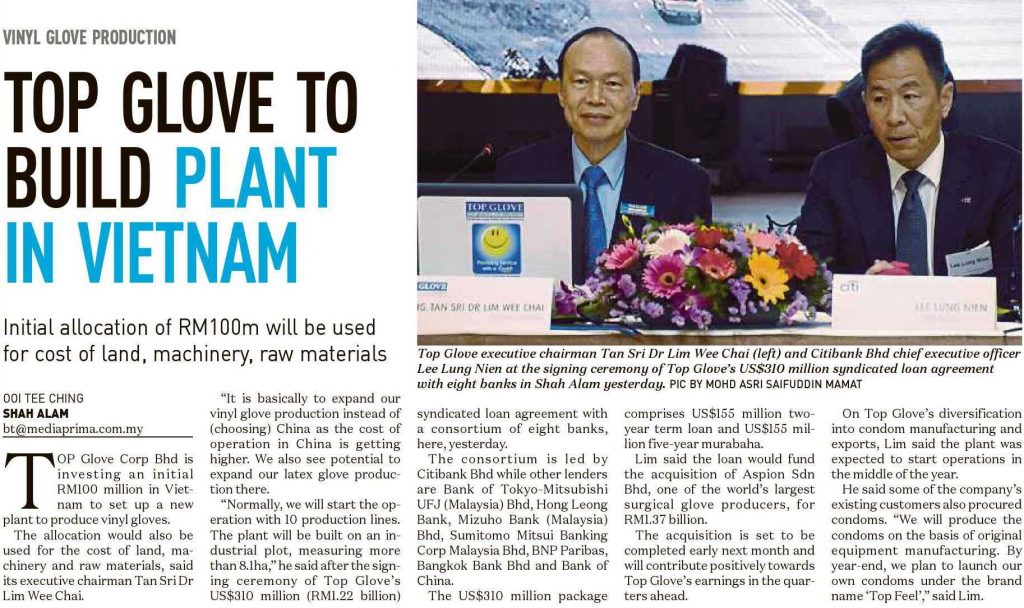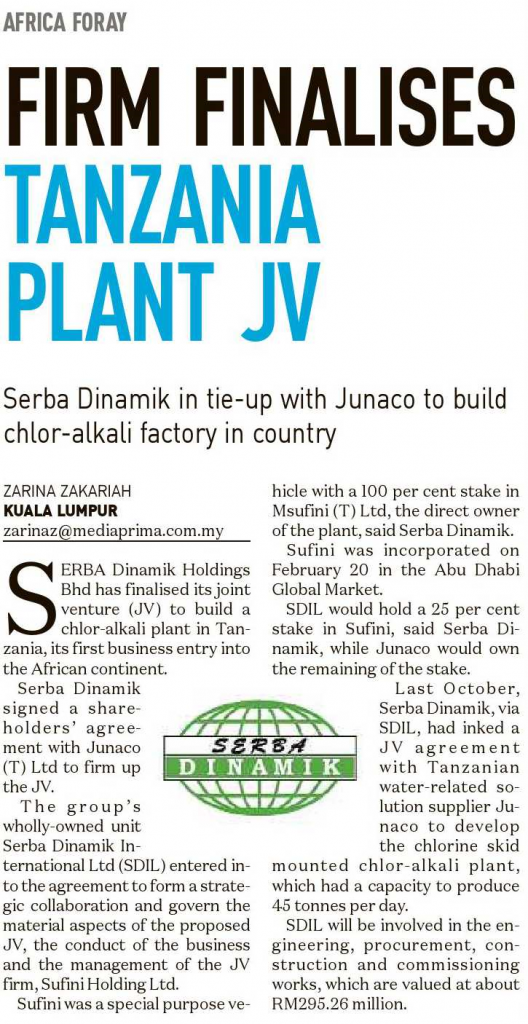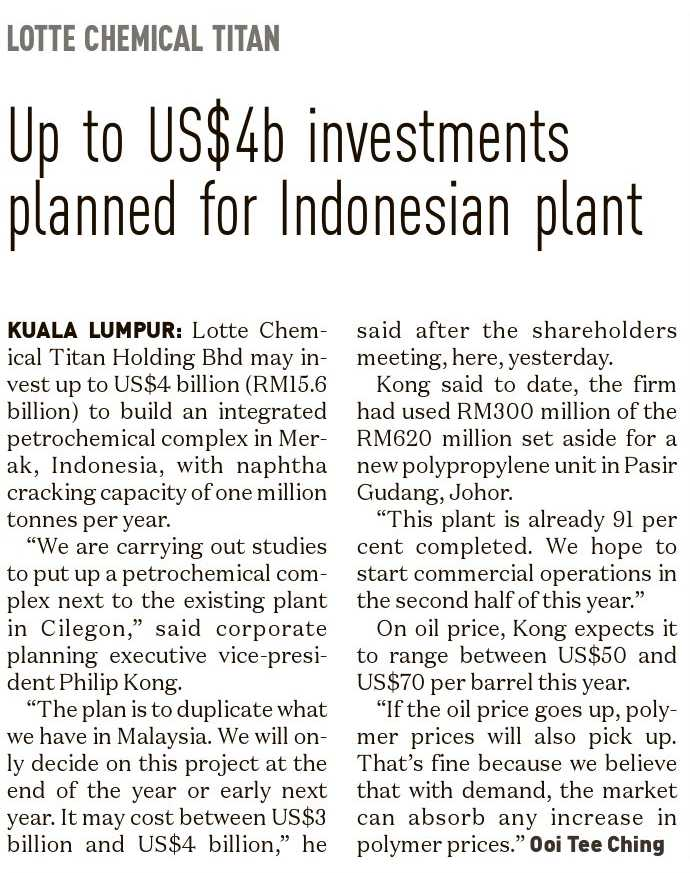Permodalan Nasional Bhd (PNB) and the Employees Provident Fund (EPF) have entered into a heads of terms to buy the commercial assets currently being developed within phase two of the Battersea Power Station project in London for £1.6bil (RM8.8bil).

Good response: Construction cranes surround the Battersea Power Station office, retail and residential development in London. Over 90% of residential units under phase 2 has been pre-sold and the entire 470,000 sq ft of office space in the power station building has been let to Apple.
PNB and the EPF have entered into a heads of terms with Battersea Phase 2 Holding Company Ltd, a unit of Battersea Project Holding Company Ltd, in which SP Setia Bhd and Sime Darby Property Bhd own a 40% stake each.
The proposed transaction is to reorganise the ownership of the Battersea Power Station’s commercial property under PNB and the EPF, who are long term investors, while Sime Darby Property and SP Setia are principally property developers.
In a statement, SP Setia said the proposed transaction would augur well for the group’s business plans.
The company said the proposed transaction would enhance investment returns and allow it to capitalise on arising opportunities as a property developer, while continuing to play a significant role in the overall development of the project.
“It will also enable SP Setia to focus on securing the development’s profit and investment returns from the remaining development phases in the Battersea Power Station project.
“SP Setia remains committed to and is positive on the long-term prospects of the Battersea Power Station project,” it said.
Sime Darby and SP Setia said both PNB and the EPF had expressed their interest to explore the transaction following strong progress made under phase 2, as over 90% of residential units had been pre-sold and the entire 470,000 sq ft of office space in the power station building had been let to Apple.
In an outline of the heads of terms, SP Setia said the proposed transaction, once completed, would provide increased certainty of investment returns to SP Setia and Sime Darby Property as development partners, earlier than would otherwise be the case.
Additionally, the transaction shall enable both parties to focus on securing the development profit and investment returns from the three to seven remaining development phases of the project.
Source: The Star
PNB, EPF buying assets in Battersea phase 2
Content Type:
Duration:



